Whenever Danish maverick Lars von Trier premieres a new film at Cannes, audiences can expect something innovative and provocative.
Breaking The Waves, The Idiots and Dancer In The Dark all aroused strong reactions on the Croisette - and his latest film, Dogville starring Nicole Kidman, should be no exception.
Like von Trier's other films, Dogville has been shrouded in secrecy. Until recently all that was known was that for the entire six week shoot the actors - including Nicole Kidman, Lauren Bacall, Ben Gazzara, Philip Baker Hall, James Caan as well as Chloe Sevigny, Jeremy Davies and Paul Bettany - performed on an almost bare stage with no physical walls, and only a few props and chalkmarks on the floor.
"My modest goal in life is to try to enrich the media I'm working in," Lars von Trier says, explaining the unorthodox nature of the shoot. "There are different ways of doing that. Either you can put more emphasis on the technical aspects of filmmaking or, as we did in the Dogme movement, less.
The story is inspired by Berlolt Brecht's 'Pirate Jenny' song from The Threepenny Opera (1928). Set in the Rocky Mountains in the 1930's Depression era, the film sees Grace (Kidman) arrive in the isolated township of Dogville on the run from gangsters. With encouragement from the self-appointed town spokesman Tom (Paul Bettany) the little community agrees to hide her and in return, Grace agrees to work for them. But Grace soon learns the hard way that in Dogville, goodness is relative.
The film was shot in Sweden - not America, a country which von Trier has never visited because of his fear of flying. "I knew I wanted to write a film set in America, as I had been so provoked by the reception of Dancer In The Dark [also set in the US] in Cannes, where American journalists told me off for criticising a country I had never been in. It made me decide to continue doing it. I mean there're so many people who have been in the US, that it must be interesting to see a film by somebody who hasn't. The US has done it for years anyway; Hollywood has specialised in making films like that. That it was forbidden of course appealed to me right away."
Dogville marks the first film in a new trilogy called U, S and A., which follows the Golden Heart trilogy of Breaking The Waves, The Idiots and Dancer In The Dark. "All my life I have been critical of American society - the way it looks from my perspective. No, I haven't been there, but my perception of the US is based on a lot more information and images than the Americans had when the for example made the film about Hans Christian Andersen. The US is a much bigger part of my consciousness than Denmark has ever been to the people who made that film.'
'As a young man I was a communist, and I still feel that I belong on some sort of a left wing, and I don't believe that the American society is very nice to the people who don't have much - to put it nicely. This is something I believe that I ought to criticize, even though I haven't been there. So in one way it is critical of the US, but at the same time not, because its similarities to today's Danish politics are striking. There're also parallels to the war [with Iraq], which obviously wasn't intended, but it is something I am very much against. I'm ashamed of the Danish participation and I have no sympathy or respect for this war.'.
Beyond his political convictions, television plays were a key inspiration for the film. "That style with one camera, two actors and a grey backdrop I missed terribly," says von Trier who cites a highly stylised performance of Nicholas Nickleby by The Royal Shakespeare Company, which he saw on Danish television in the 1980s, as making a very strong impression on him.
"Even though some of the style back then no doubt came out of necessity, every time I see something that has an even remotely theatrical feel to it on TV, I stop zapping through the channels. Everything else is the same. You become absorbed in a different way with something like this."
Dogville's intentionally spartan set stands in complete contrast to the lavish locations and cinematography of much contemporary cinema. Says von Trier: "As much as I admire someone like Stanley Kubrick tremendously for waiting months to get the right shot of light on some mountains, when you can do the same thing in one-and-a-half minute on a computer, I do not get impressed anymore. Now things have become so film-like that it isn't interesting anymore, not like it was when they were hard to achieve "
Von Trier believes that the pared down approach of Dogville will heighten the experience for viewers. "The audience gets to put more of themselves into it," he argues. The bare stage acts as 'a decoration, a set piece, and it doesn't matter. We want you to focus on and be interested in something else entirely, namely the characters, the actors and the story. This technique works as a psychological zoom, which goes in close on these people."
According to the director, it's just a question of making an agreement with the audience. "You are not in a different place just because a picture of mountains is projected on the wall of a cinema. You still have to agree on what those images mean. This is different, but really not any less abstract.
While Dogville was devised as an experiment, it nevertheless attracted a wealth of US star power. It has already been sold to most of the world - leaving key territories USA, UK and Germany open. Nicole Kidman's newfound post-Oscar cachet also couldn't come at a better time for Dogville.
Von Trier, who wrote the part especially for Kidman, is full of praise for the actress. "If you have to compare her to Björk, then the fundamental difference is that she really wants to make films. While Björk had no ambitions about the film, Nicole is the complete opposite and highly disciplined. At the same time she loves to be challenged, and has been incredibly brave and ready to try new things all the time."
Indeed Trier's collaboration with Kidman has meant that his next two projects should also star her using the same technique, and the first draft of the second instalment in the trilogy, Manderlay, will also be presented in Cannes.
Read Jacob Neiiendam's full-length interview with Lars von Trier in FILM, the magazine published by the Danish Film Institute in Cannes




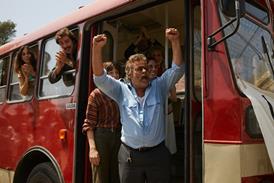
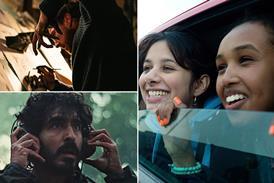






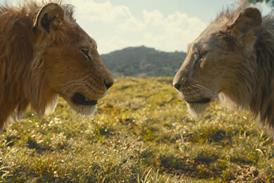
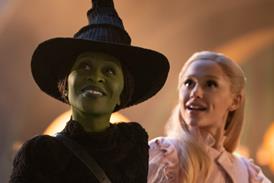
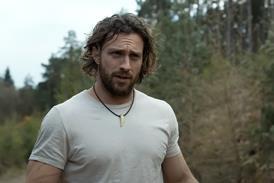



No comments yet